
‘Power in the darkness’: LGBTQI media is struggling to survive. Can it be saved?
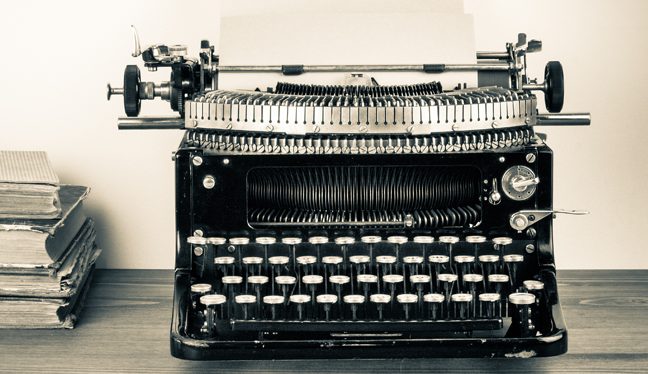
Laurence Barber examines the uncertain future of LGBTQI media and the pressing need to preserve community control over our own stories.
* * *
It’s difficult to talk, or even write, about LGBTQI issues without starting from the basis of community. The way we discuss these concerns, for the most part, is inherently unifying: you attack one of us, you attack all of us.
But rhetoric and action are very different things. We are increasingly dependent on the former as a vessel for our moral certitude, particularly when it comes to how we are presented in, and reported on by, the wider media.
From the Star Observer’s vantage point, this special 40th anniversary issue comes to you just two months after the organisation was forced into voluntary administration. This is not new for either the organisation, or the community. Even Mardi Gras hasn’t survived its almost 42 years unscathed, with that organisation entering voluntary administration in 2002.
More recent years have seen OUT in Perth end their print publication to focus on digital.
Publisher Evo Media went under in 2017 amidst decidedly inauspicious allegations, taking samesame.com.au, MCV, SX and more mastheads with them. And an ongoing list of LGBTQI-centric venues have closed, reopened, rebranded, and struggled to survive.
International LGBTQI media organisations have emerged and begun to compete with us and others for online readership.
[Editor’s note: since this piece was written, UK-based queer media outlet Gay Star News has also announced it will shutter.]
The ABC and SBS have used their taxpayer funding to push further into covering LGBTQI stories as part of their chartered obligations to reflect the breadth of Australian society, up to and including platforming notorious bigots whose entire public identities are often built around the continued subjugation of large sections of our community.
All this interest in this space isn’t necessarily bad, but it’s also happening so quickly that this ostensible progress hasn’t been subject to sufficient scrutiny.
From behind the LGBTQI media curtain for the past three years, I’ve observed a recurring cycle of complacency among us, a feedback loop of curious apathy. This is not an accusation but merely an acknowledgement of a problem – in which we are all complicit to a degree – that needs to be worked on.
Rhetoric vs. Action
In the same way that rhetoric and action are very different, so too are presence and representation.
A broad scope of entities lay claim to the notion of representing the community, or are labelled as doing so due to their sporadic presence.
Banks, law enforcement agencies, political parties, sporting organisations – you name it. Most have year-round initiatives, many of which benefit the community as they see fit.
Some sponsor Mardi Gras and enter floats in the parade, some paint their logos rainbow in February and then go silent for the rest of the year. All leverage our concerns for their gain as much as, if not more than, ours. These things are not inherently bad, but we need to assess our long-term investment in their value.
Suffering and Objectification
The shift in how our issues are reported on has changed dramatically over the course of the Star Observer’s life. It took The Sydney Morning Herald until 2016 to apologise for publishing the names of the 78ers arrested on June 24, 1978.
A little over a year following those arrests, Michael Glynn hand-delivered the first run of The Sydney Star. Mainstream media organisations spent the 1980s, and beyond, demonising people living with HIV to an extent where the stigma engendered by those fear campaigns – such as enabling debate over the notion of quarantining people with AIDS – is still being undone today.
The prevailing angles on LGBTQI news are centred on either suffering or objectification.
It took the intensive work of activists in Australia to engage journalists to provide accurate information in reporting around HIV. It has taken concerted efforts on the part of community organisations and advocates to attempt to guide and reshape mainstream reporting around decriminalisation, discriminatory ages of consent, marriage equality, intersex rights, transgender rights, LGBTQI mental health, Indigenous LGBTQI suicide, Safe Schools, being LGBTQI in culturally and linguistically diverse communities, balancing queerness and religion, and so many more.
The Wars to Come
Many of those attempts at transforming rhetoric into action took the form of relentless, draining, public wars fought over our personhood. Some of those wars are still being fought, some have been lost, and some may not end in our lifetimes.
Those activists are, and have been, the ones who represent these issues, and did so long before it became commercially viable for mainstream media organisations to balance sympathetic reporting of our issues and stories alongside dog whistles and clickbait.
Many journalists who are alumni of the Star Observer have gone on to do tremendous individual work within these media empires, and many journalists and writers have contributed to these pages or been interviewed on them over the past forty years.
David Marr spoke to the Star Observer last year about reporting on the first Mardi Gras. He said he had been “nervous about writing a big gay piece in a Fairfax publication” despite being out to his colleagues at the time, but acknowledged, in hindsight, “I wouldn’t be a journalist if I wasn’t gay.”
“I have been banging my head against brick walls for something like twenty years about religious exemptions to anti-discrimination laws,” Marr said.
The war over “religious freedom” began quietly in the wake of the postal survey, exploding into full, gory bloom in the past year, and that cycle has begun anew.
Intrastate debates over gender markers on birth certificates have bled into the soil of the national consciousness, prompting open transphobia from the man recently re-elected Prime Minister.
In the UK and US in recent weeks, studies have shown a drop in overall support for LGBTQI issues, even among young people – the ones we generally expect to help us to lurch towards a more progressive future. We’ve become increasingly reliant on this external support, both in terms of groundwork and attempts at representation.
Equality vs. Equity
The voices of allies have begun to supersede those from within the community. Corporations drown out community organisations even in their desire to lift them up. This has ceased being a question of equality and become one of equity.
Journalists and writers who identify as LGBTQI continue to write emotionally and engagingly for major media organisations that simultaneously profit off spreading damaging misinformation about already vulnerable trans children under the insidious guise of “opinion.”
Many of us feel or are obliged to read that writing, to let it seep into our soul. To be queer and engaged in the media, as reader or writer, is often to be a masochist. Every article, good or bad, can feel like a judgement of worth.
“I’ve been an advocate for 30 years and I’ve been listening to damaging bullshit about our community that entire time,” Jac Tomlins wrote for us in March.
After thirty years of advocacy, she can no longer engage with our community’s pain. “I’ve reached my tipping point.”
On any given day, the same mainstream media organisation could vaunt a celebrity’s coming out, then deadname a trans person, or ignore any number of other very well-defined and easily accessible guidelines around reporting on LGBTQI issues.
At a certain point, are we willing to allow both to happen without reacting? Are we willing to take those stealth strikes against our community without some kind of response? And are we willing to drastically change our habits in terms of how we engage with reporting about us?
The Price of Pain
I refer to Marr and Tomlins’ pieces because I’ve been paying attention to what gets read on the Star Observer website for a long time now. And I can confidently tell you that in that time the number of stories we – often me, personally – have written about our community that centre on our suffering, or those who wield power and discriminatory language in service of it, far outweigh their opposites.
Frequently, our features attempting to raise the voices of emerging activists in the community and the real, tangible work they are doing will struggle to find their audience.
I have, often with a lump in my throat, written many stories leveraging evil at the expense of good knowing that the commercial imperative to do so is borderline undeniable as long as the need of an audience corresponds with queer media’s ability to survive.
Neither I, nor the Star Observer with its evolving 40-year history, have been exempt from participation in this vicious cycle. But I have also found myself a victim of it, routinely sinking into myself at the prospect of another week of weaving hatred and violence and harm into content with my own hands.
In a searing essay in The Monthly earlier this year, Richard Cooke examined the largely unchecked influence of News Corp on Australian society, and the growing unease within it.
“Sometimes it can be difficult to tell where Liberal Party talking points begin and News’ coverage ends, or where each originates,” he wrote.
Grassroots movements against the organisation’s influence have gained “the private support of some of the News’ own good journalists, who, after all, like all of us, are overdue for liberation.”
Towards Freedom
Media consolidation is a real and valid concern, and we’ve reached a point where the question of balance – specifically, if it can even exist anymore – is one that has to be asked.
And we have the opportunity to liberate ourselves, in that sense. Not just from existing at the mercy of definitions set by institutions which we know are capable of turning on us at any time, but from our need to engage with the presence of suffering rather than the representation of vulnerability.
It is by no means this clear a dichotomy, and we will always need to shine the brightest of lights on suffering where it need be exposed; but the decades-long pattern of marginalisation we’ve had to survive has left us, and I imagine many others beyond our community, bound to a perverse desire to consume the words of those who work to oppress us instead of our siblings who uplift us.
In late June 1979, a week prior to Michael Glynn’s delivery of the first ever Sydney Star, the second Mardi Gras was held under the theme ‘Power in the Darkness’.
Culturally, there was a pervasive sense that perhaps marriage equality – that equalising, normalising, arguably softening force – would turn the lights on once and for all.
Embracing the Darkness
But the lights will almost certainly never come on, and we have to question whether we need to fully depart the safety of the dark room we have always been asked to live in.
Perhaps that’s overly fatalistic, but the significant environmental, and therefore economic, challenges we face are very real. There may come a point where we reach as much progress as we’ll ever be able to. Catastrophe begets conservatism, and as we see daily with the religious freedom ‘debate’, they will attempt to limit us every step of the way.
The media conglomerates will survive without you. Maybe not forever, but they have the resources to adapt and survive. They do, can, and will go so far as to harness and platform bigotry for profit if they are allowed to. In the global publishing landscape, great prosperity is a distant hope for queer media organisations, let alone for Australian ones.
Without you, however, we will not survive. I know I sound dramatic, but I’m a fucking faggot, and there was a time when I would be more likely to be labelled as such in mainstream media than to be given a chance to shout over the din created by it.
And If I’m not camping it up, then the message won’t get across, and the cycle of complacency that sees us sacrifice representation at the altar of mere presence will continue.
We need you. Not just the Star Observer, but every organisation doing the frequently underpaid and under-resourced work to try to cling to the history that work is built on. History that could so easily be erased and taken away from us.
We need to stand together to find our way. If we don’t, then we will lose the power we derive from darkness.




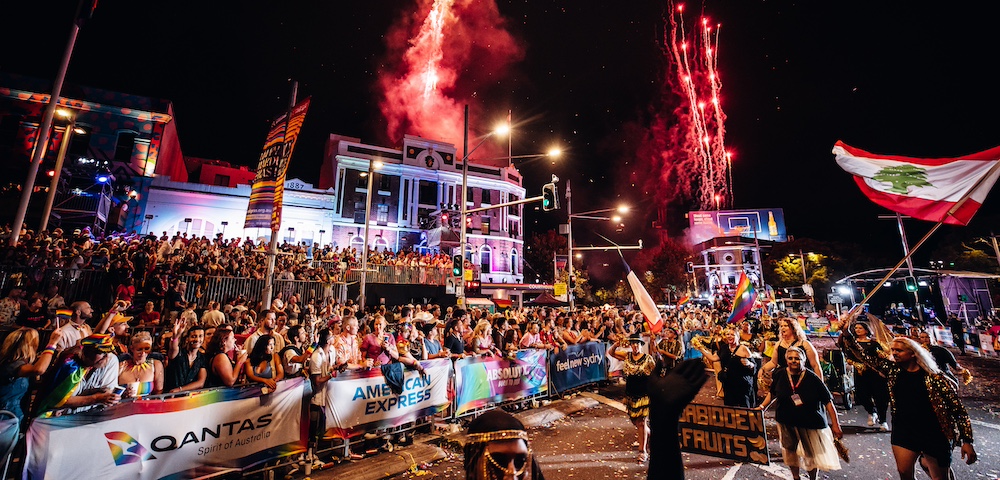

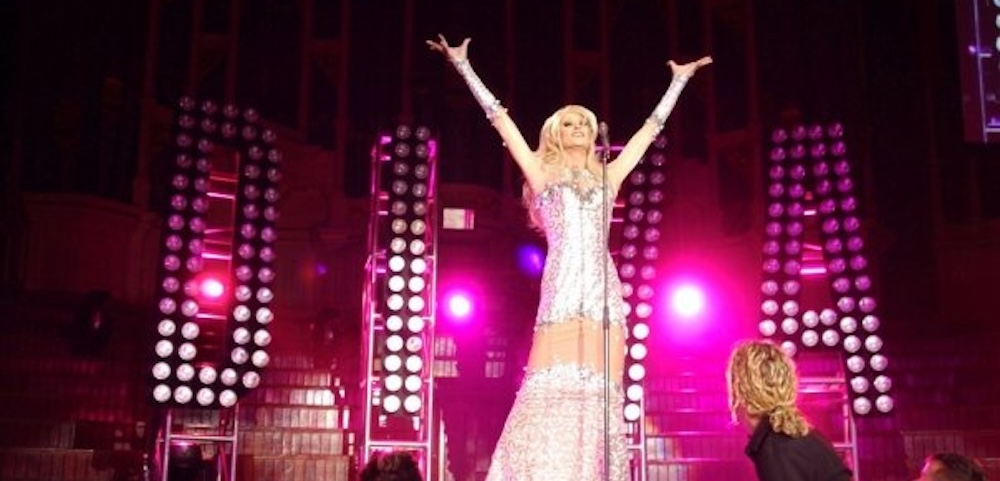

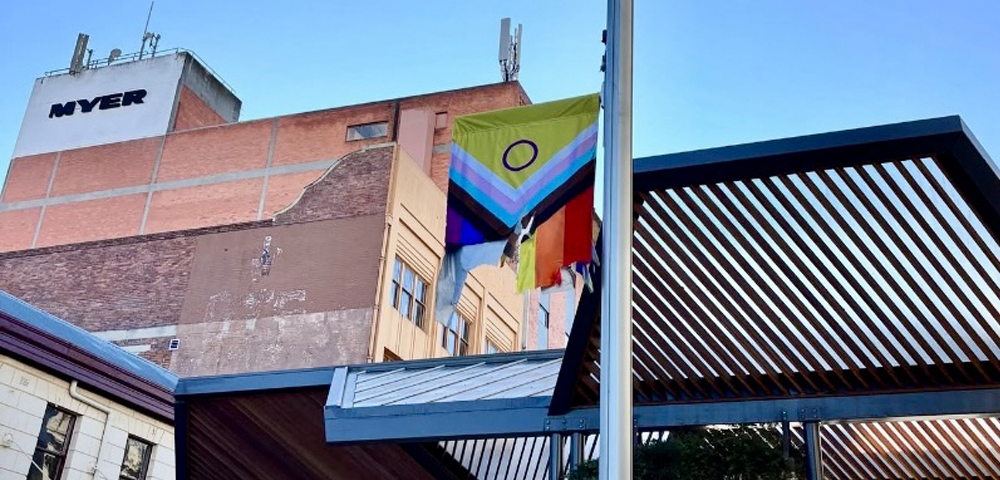
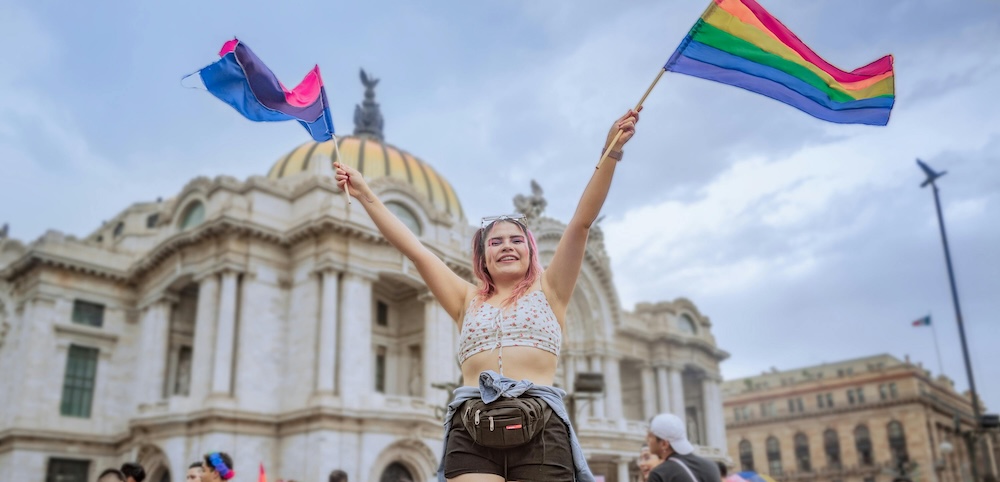
My problems with the LGBT+ media, which is a problem I know a lot of other gays and lesbians have, even bisexuals – is the extreme focus on transgender people.
The wast majority of humans believe in 2, maybe 3 sexes, male, female and intersex. They believe that the sex is in the genitals, males have penis’s, females have vaginas and intersex might have both.
The LGBT+ community is now fighting with each other and it will rip us apart because you cannot have a community that is based on sexuality and one on gender be united in the long run because they don’t fight the same battle. Some trans people are fighting with gays and lesbians because they themselves see themselves as either gay or lesbian, so it makes perfect sense for them to fight with gay and lesbians, but why should gays and lesbians fight for trans rights? Especially when a lot of trans people consider themselves straight and we don’t want to change the idea of what a sex is?
Let us also not forget that there have been trans people who were supporting corrective rape and even talked about how gays and lesbians should change their sexuality all because these would not have sex with a trans person!
The LGBT+ Community is not one united community. We are as diverse as everything else in this world. There are racists, transphobes, homophobes, biphobes, leftwingers and rightwingers. There a fat-shamers, thin-shamers, antisemites, islamophobes. There are Christians, Moslems, Jews, Atheists and Satanists.
So no, the community will not last and neither will the LGBT+ Media
The LGBT community has always had a money issue. It feels a little gross to prove our buying power or spending value when a disproportionate number of LGBT community members, particularly in the trans community, lives in poverty. And yet for LGBT media, money is a necessary evil. In July 2017, Grindr launched Into (I came on as managing editor in November 2017), and shortly after, Conde Nast announced the beginnings of its own LGBT outlet, Them. Both of these spaces signaled the latest iteration of new, younger, “cooler” alternatives to legacy gay media, like the Advocate, the longest-running national LGBT news and politics magazine run out of Los Angeles, and Out, the Advocate’s younger, flashier, more fashion-forward sister. Despite the frequent attempts made by these publications to diversify their staff, their coverage, and their readership, they have been criticized for putting a lot of straight white guys on their covers and a lot of gay white guys on their mastheads.
Thought provoking article thanks Laurence.
I think there are also wider issues involved that also might explain why the gay press is losing readership. Over recent times it has become evident that some editors think all gay people fall into some sort of left wing political thrust. If one doesn’t fit this category just doesn’t cut it as far as the gay press is concerned. The very thought that many gays are conservative just doesn’t seem to fit and anyone who dares to express any view that the left is not in agreeance with, is demonised and even censored (as I have been) on several occasions.
Some sacred cows to the community (one of them a certain Lord Mayor) seem to enjoy complete protection from any article that questions things that should be open to discussion.
Once an avid reader and contributor – these days I bother less. As far as I’m concerned the issues are not just about outside perceptions but how we treat one another within our own circles.
I sympathise, but maybe have a look at this article for an insight into why no one’s reading. Wordy, self-righteous, boring. There’s an audience there but if they’re not coming to you, perhaps consider that it’s something you’re doing.
Fantastic article. Congratulations, Laurence.
An extremely well written call to arms Laurence and I hope the call is heeded. I’ve had to face some much discrimination and prejudice from society and my family in my life, my safe harbour was always my queer family. I hope, that like Mardi Gras, we will adapt and survive and continue to fight, every day of our lives, cause that’s what being a faggot is all about, thank fork we’ve got thick skins!
Well written, Laurence. The short-lived freedoms (and safety, and security) that the Russian LGBTIQA+ community had is proof that anything bad can unexpectedly happen for our people anywhere.